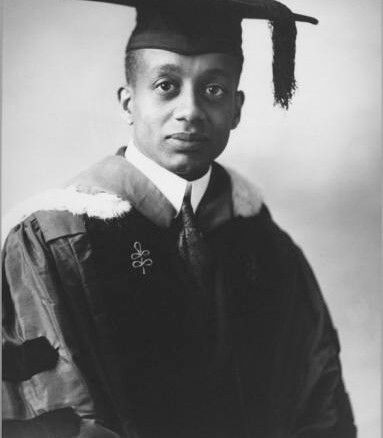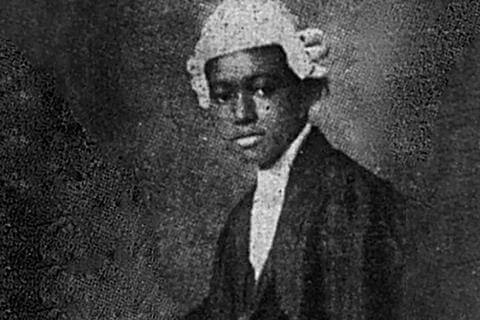Celebrating And Remembering Black Lawyers in The UK
As the HJA criminal law team celebrates Black History month in the year that we lost one of the profession’s most prominent criminal barristers, the legendary Courtenay Griffiths KC, we remember him and look back at other key figures who contributed to the rich history of black lawyers in the UK.
We celebrate and remember Courtenay Griffiths KC (1955-2025). Born in Kingston, Jamaica Griffiths moved to the UK in 1961 at the age of six. He was part of the “Windrush generation” which saw the mass migration of Caribbean and then African commonwealth citizens to the UK to help fill the labour shortage resulting from WW2. After graduating from the London School of Economics, he was called to the Bar in 1980 and was appointed as Queen’s Counsel, now King’s Counsel, in 1998. He acted in some of the most high-profile and complex criminal cases of our time including the PC Keith Blakelock and Damilola Taylor murder trials and the Brighton bombing trial. He also practised internationally, notably representing the former Liberian president Charles Taylor in his war crimes trial in The Hague. Not only was Griffiths revered for his “formidable advocacy” and “devasting cross-examination”, but he is credited as a key figure who paved the way and inspired a generation of black lawyers.
 We celebrate and remember Christian Frederick Cole (1852 – 1885). Originally from Sierra Leone, Cole is recognised as the first black African barrister in England. He was also the first black African to graduate from the University of Oxford, where he studied as a non-collegiate student and then at University College. He was called to the bar in 1883. The following is noted of his first appearance as a barrister before the Court in 1884: “His address…showed an unusual command of ‘the tongue that Shakespeare spoke’, a felicity of expression, good taste and intellectual force”. Cole is credited with producing important publications of his time concerning the Anglo – Zulu war of 1879 where he criticised British colonialism and imperialism.
We celebrate and remember Christian Frederick Cole (1852 – 1885). Originally from Sierra Leone, Cole is recognised as the first black African barrister in England. He was also the first black African to graduate from the University of Oxford, where he studied as a non-collegiate student and then at University College. He was called to the bar in 1883. The following is noted of his first appearance as a barrister before the Court in 1884: “His address…showed an unusual command of ‘the tongue that Shakespeare spoke’, a felicity of expression, good taste and intellectual force”. Cole is credited with producing important publications of his time concerning the Anglo – Zulu war of 1879 where he criticised British colonialism and imperialism.
 We celebrate and remember Stella Thomas (1906 – 1974). Born in Lagos, Nigeria and educated in Sierra Leone, Thomas came to England in 1929 to study law at Oxford. After graduating in 1933, she became the first African woman to be called to the bar. She was a committed activist and a founding member of the League of Coloured Peoples; a multi-racial civil rights organisation which aimed to promote the rights and interests of African, Asian and Caribbean minorities in Britain and the Commonwealth. She practiced in the UK for a short period before returning to West Africa where she established her own law firm in Lagos Island. She became West Africa’s first woman magistrate in 1943.
We celebrate and remember Stella Thomas (1906 – 1974). Born in Lagos, Nigeria and educated in Sierra Leone, Thomas came to England in 1929 to study law at Oxford. After graduating in 1933, she became the first African woman to be called to the bar. She was a committed activist and a founding member of the League of Coloured Peoples; a multi-racial civil rights organisation which aimed to promote the rights and interests of African, Asian and Caribbean minorities in Britain and the Commonwealth. She practiced in the UK for a short period before returning to West Africa where she established her own law firm in Lagos Island. She became West Africa’s first woman magistrate in 1943.
We celebrate and remember Leonard Gaston Woodley QC (1927 – 2020). Born in Port of Spain, Trinidad & Tobago, Woodley moved to the UK in 1960. He studied at the University of London and was called to the bar in 1963. He specialised in criminal defence and often appeared in trials with a political or civil liberties element. He was involved in many of the famous race trials of the 20th century, including those related to the Mangrove Nine trial, the 1981 Brixton riot, the 1980 St Pauls riot and the Broadwater Farm riot. In 1988, he was the first person of Afro-Caribbean heritage to be made Queen’s Council, and between 1988 and 2000, was head of 8KBW and 1MCB Chambers. In 1988, he invited Nelson Mandela to be an honorary door tenant of Chambers, as a mark of solidarity with the South African freedom struggle. He endowed the Leonard Woodley Scholarship, to be given to black or Asian pupils with a view to promoting greater diversity at the Bar.
We recognise our contemporaries: Patricia Scotland, a daughter of the Windrush generation who in 1991 became the first black woman (and the youngest woman) to be appointed as Queen’s Counsel and later became the first female Attorney General for England and Wales. We recognise Stephanie Boyce who became the first black President of the Law Society in 2021. We recognise the Rt. Hon David Lammy the first black Deputy Prime Minister and the Rt. Hon Kemi Badenoch the first black leader of the Conservative Party, both of whom are law graduates.
We celebrate and remember the great strides made by our brothers and sisters in the profession that have inspired generations of black lawyers. However, we must never forget the struggles our predecessors faced, especially as we still face many of the same obstacles. Today black lawyers make up only 3% of the profession in the UK with only 1% being represented in the judiciary. When you compare that to the gross over representation of black people at the other end of the criminal justice system, one clearly sees the disturbing imbalance. Every effort must be made to redress this imbalance. This is just one of the reasons why we at HJA champion equality, diversity and inclusivity.


